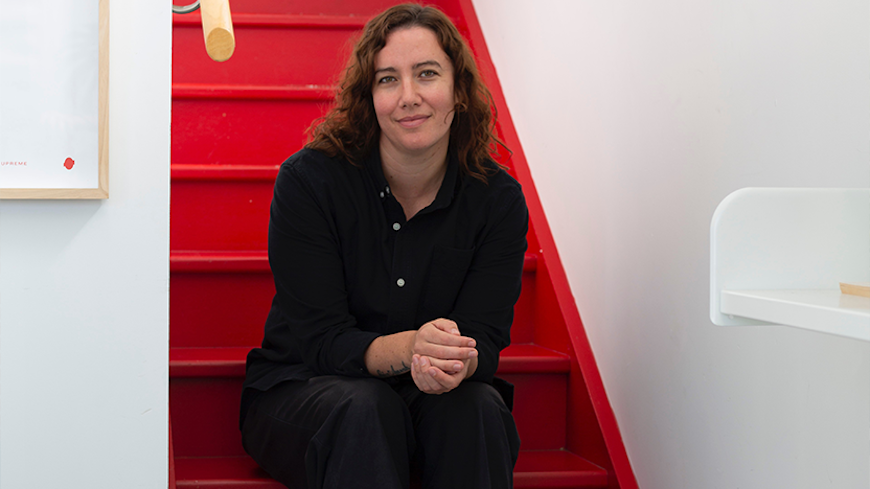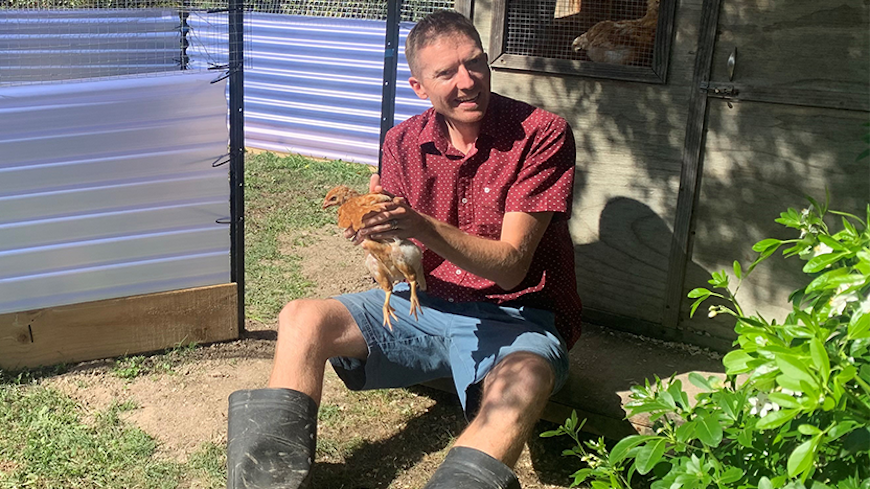
By Jessica Keane
Former Digital Journalist | Kaiwhakahaere Kaituhi Matihiko
Across the country, New Zealanders are struggling to keep up with the increasing price of groceries.
Consumer NZ has surveyed more than 1000 people about how the price of groceries is affecting them. Almost all (98%) said they were worried about the cost of groceries in New Zealand and were making changes to their weekly shop as a result. More than four in five (84%) have removed items from their usual weekly shop because of cost.
Our research has also shown that the price of groceries is in the top three of the nation’s financial concerns, surpassed only by housing costs and unmanageable debt.
On Tuesday 8 March, the Commerce Commission released its final report into the grocery sector to the government. You can see our response here.
We spoke with New Zealanders across the country to find out how food prices are affecting them.
Diana Best-Hutchison - Wellington

Diana Best-Hutchison is kept busy as a full-time parent of five, with one more on the way. She said her husband is a devoted, hardworking man, but with a big family, the budget is tight.
Best-Hutchison said the high food prices are “unrealistic for a normal-sized family, let alone a family of seven”.
Lately, the weekly rotation of dinners has been toast, eggs on toast, noodles or cereal.
Best-Hutchison knows there are many households that can relate.
“It makes me feel guilty as a mother that it’s not fresh, wholesome and healthy for growing children...I don't feel it's right to be over-charged on food items to put something decent on the table or in lunch boxes.
“Don't get me wrong I am grateful to have food on the plate and I teach our children to appreciate what is given... but does that justify our daily sacrifice as parents and caregivers who care for the well-being of our children’s health, growth, mental, physical and emotional needs?”
Best-Hutchison said “I would love to buy all the delicious fruits, however, just the other day I picked up a 1 kg bag of apples and it cost $9, what's that saying?”
“We're just all trying to live out each day and survive...I can only imagine the difficulties in our wider communities.”
How Diana Best-Hutchison has changed her shopping habits:
Buying 1kg bags of frozen vegetables, instead of fresh, as these are much cheaper.
Buying frozen chicken nuggets, and chicken or beef patties, as it’s more affordable than buying fresh meat.
Going to several different grocery stores to find cheaper sale prices.
No more weekly shop – instead she spends time and effort shopping every day to make the most of daily specials.
Natalie Guest – Auckland

Natalie Guest, 35, is a wholesale manager in Auckland. She lives with her partner, and 13-year-old daughter.
Guest loves to cook and is passionate about eating seasonal, healthy food. She knows she and her partner are privileged to earn good salaries, yet they are still feeling the impacts of the high cost of living in New Zealand.
“I've really noticed over the past few months that our usual budget has been very difficult to stick to and frankly it's hardly enough to cover the basics.”
Guest is having to plan each meal down to the detail to make sure they are made with items that will fit in their budget.
“No matter how hard I try I cannot wrap my head around the extortionate prices New Zealanders pay for products we produce here such as dairy and meat, these items are now luxuries for many Kiwi families.”
Guest said that shopping around is a commitment as she has to shop on a certain day (Sunday markets) but it also means that she is able to stick to her budget.
“I really do feel concerned for families who are struggling to feed themselves, or who don't have time or means to shop around.”
How Natalie Guest has changed her shopping habits:
Cutting back on meat and eating more vegetarian meals.
Splitting budget into three parts - the butcher, fruit and veggie market, and the supermarket.
Only buying fruit and veggies at the market as it’s cheaper than a supermarket.
Rationing cheese and dairy products.
No treats on the menu.
Kara – Kaitāia, Northland
Kara (not her real name), 27, from Kaitāia, lives with her partner and two kids.
The increasing food prices have seen Kara eating less herself to ensure that her kids don’t go without.
“I am finding the need to buy portions that I know can stretch across meals.
“Both my children are having growth spurts so their appetites can fluctuate. I am indeed reducing my meals to ensure they are fed enough.
“I’ve also always had a habit of buying cheap personal products for myself to ensure I can afford all the things I need.”
In Kaitāia, there is only one supermarket – Pak’nSave. Residents of neighbouring towns have no grocery stores, so must travel to Kaitāia in order to do their weekly shops.
Kara said there is no competition besides one local veggie shop, where many shoppers go to get more affordable veggies.
“We already had that lifestyle of buying veggies and fruit cheap from a fruit and veggie shop. It is the only way to survive,” she said.
“The hassle is going to buy meat that is expensive in price but is not enough in quantity...so as a result, we get less for our money.”
Scotty Donaldson – Nelson Tasman Region

Scotty Donaldson is a communications professional who lives in the Nelson Tasman region. He’s part of a family of four, with a wife and two kids. They have special dietary requirements due to allergies, which means they require specialty food items.
“While a lot of prices have sneaked up, I am often finding that some brands and products are unavailable, which can mean going for a more expensive product or going without it until it is available. It depends how urgently we require it.”
“It’s quite satisfying being able to produce your own food.”
Donaldson said he has always shopped around for sale items.
“It is just a matter of working out a system so you aren't driving around too much, especially since petrol is getting more expensive. Sometimes if there is a delivery deal, like FreshChoice sometimes has, then we will click and collect or get items delivered.
“I know quite a few people who go to more than one shop to do their weekly groceries. I think at the moment when things are tight for a lot of families, saving money on groceries is important, but sometimes it is hard to find the time, so you have to be committed.
“I do sometimes wonder if the time taken shopping could be better spent doing other things.”
How Scotty Donaldson’s family have changed their shopping habits:
Waiting to buy items until they are on special or available.
Cut down on bread to save money due to the high cost of gluten free loaves.
Planting vegetable beds and growing their own produce.
Purchased six laying hens to save money on eggs.
Read our full media release here.
